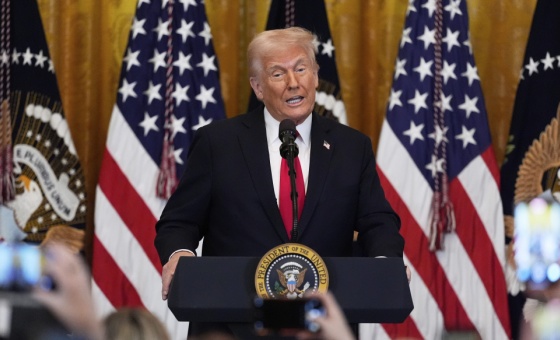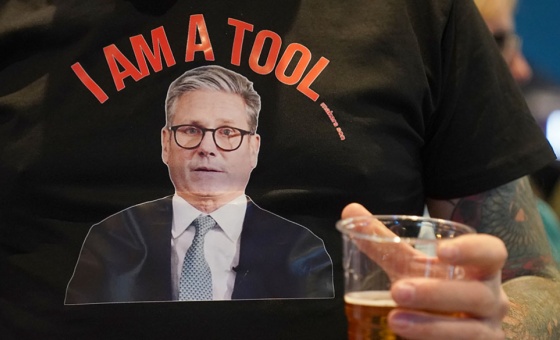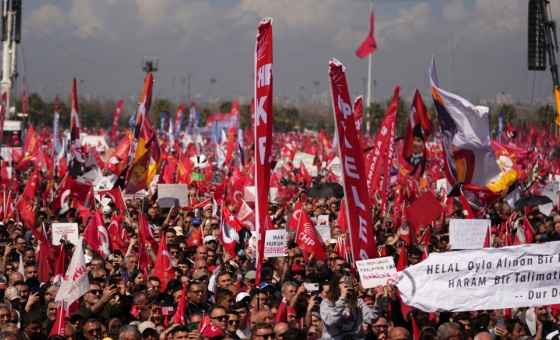This is the last article you can read this month
You can read more article this month
You can read more articles this month
Sorry your limit is up for this month
Reset on:
Please help support the Morning Star by subscribing here
A STRIKE wave is hitting Britain — and the Communications Workers Union is at the heart of it.
Overwhelming votes for action at BT and its subsidiary Openreach were posted last month. Workers at another BT Group company, EE, also voted to strike but the union was just eight votes short of the participation threshold. It’s now balloting for action at Royal Mail.
“These companies need to recognise that they are losing the support of the workers in a big way by prioritising shareholder value over the needs of their workers,” CWU general secretary Dave Ward says.
“Given a number of factors — like the cost-of-living crisis or the fact that these are key workers who have gone above and beyond through the pandemic — I don’t think this is a sustainable policy for most companies.”
Ward says BT Group was startled by the result of the union’s strike ballots: “They expected us to scrape over the line in Openreach, they didn’t think we had a chance in the other two” (with BT staff largely atomised, home-based call centre workers and EE only having had union recognition since 2019).
Company boards who have long behaved as if workers have no choice but to like or lump rubbish pay and poor working conditions are finding out otherwise.
A “simple strategy of saying the CEO earns this, the worker earns this, the shareholders got this — and that can’t be right” is mobilising workplaces and chiming with public opinion.
That’s partly because inflation is so high that the cost of not taking action is intolerable for many workers.
“But one of the key things is that the cost-of-living crisis is being seen as a win-or-lose moment. But I think it needs to be more about ‘win and build.’
“That’s how it ties into the campaign for a new deal for workers, for a new settlement for the UK.
“That’s what takes you beyond the cost-of-living crisis. I’ve had some conversations with leaders taking action in other unions about this. There is going to be a moment where people will settle, and those settlements need to be good enough that we can say, ‘Well, we’ve got a better deal, but we’re still carrying on the fight because we’ve got this wider campaign’.”
One of the CWU’s planned motions to TUC looks at the next steps for the campaign, which should involve “an autumn programme of actions to build collectivism, solidarity and mobilisation, including a new round of town hall meetings linking up with community organisations around the UK.”
“I think these meetings could be very powerful this time around,” says Ward. “I think you will see bigger audiences that reflect the change in public opinion brought about by the strikes.
“You will get more of our own members turning up, more members from different unions turning up and it can be very powerful to see front-line workers from different unions sharing a platform and talking about building trade union strength.”
Ward is alert to the risk that, following the Jeremy Corbyn period where an upsurge in socialist political activism was not accompanied by a significant increase in trade union militancy, we now go down the road of industrial militancy but without the politics.
The new strike wave comes as Labour has lurched right, with Keir Starmer’s latest “vision” speech failing to mention any of the industrial disputes dominating the news or even mention pay. Small wonder most unions do not see Labour as part of the solution to their members’ problems.
“Well, we’re kind of having to take ownership of the social policies that you would expect the Labour Party to push.
“Rebuilding the welfare state — in a way that is the political side to the new deal campaign, not just through the amount of money going into the NHS or social care, but getting back to decent jobs, putting money into the workforce, giving the workers more say on how these services are run.
“We’re not saying we would disaffiliate from Labour now. Our priority is building collectivism and there are three strands to that — the collective bargaining agenda of the new deal, getting unions to take that forward.
“Second, building those links with community organisations and third, not abandoning politics but channeling our support where it has an effect, through some regional figures for example, with the community wealth-building projects.”
As workers win on pay and start to deliver socially in alliance with community organisations and local government where possible, this could shift the position of Labour nationally.
This doesn’t mean ignoring the ill-treatment of Labour members attacked by the current party regime: “We will support people who are treated in this way, we’ve made our views clear to David Evans and Keir Starmer.
“But the other way to support these people is to build your strength to a point where you can force the direction that Labour goes in — or if it really gets to a point where we don’t see any possibility of that, we’ve already built something here, and it’s strong enough, and maybe we can go in a different direction.”
Some Labour MPs ignored pleas from their leader to stand on picket lines with striking rail workers. “We’ve written to every Labour MP saying we’ve got three disputes on, two we’ve voted to strike and we expect a massive Yes vote next week in Royal Mail. And we expect you to support us.
“Be out there supporting our members on picket lines. And I think we’ll see more of them do that, they’ll be gaining confidence in the same way the trade union movement is gaining confidence from public opinion.”
There is no divorce between politics and recognising that a union’s industrial strength can protect workers in the absence of the right government policy, he believes.
To take Royal Mail, “at every Labour conference we stand up and say, you need to bring Royal Mail back into public ownership. You need to reconnect it with the Post Office.
“But while we oppose privatisation we often don’t get the credit for recognising that the strength of the union can limit the damage. The agreement we negotiated prevented the next steps of privatisation, that is, selling off the different parts of the company so the profitable ones make a profit and other parts are run down.
“Now I know they want to do that. But thus far they haven’t been able to do it. You’ll see what happens in these disputes, ultimately that issue might come to the fore — you may see an attempt to sell of GLS, the parcels element whose profits have underpinned Royal Mail’s.”
Ward takes a similar attitude to the latest anti-trade union law. “Of course we should get rid of the anti-trade union laws, but our starting point should be ‘we are going to do what we need to do come what may’.”
The union has already exceeded expectations in its ability to beat ballot thresholds in atomised sectors with workers isolated from each other; strong local links with community organisations could also stymie attempts to break strikes with agency workers, if an employer realises it is not just facing down a workforce but a whole community.
“That’s sort of what happened in [last year’s] Clarks dispute” (where workers for the footwear firm in Somerset beat fire-and-rehire plans).
And it’s time, Ward believes, for the movement to get serious about reform of the TUC itself to better “co-ordinate power” — the theme of the other planned motion to TUC Congress this autumn.
Calling 2022 a “turning point in the history of the British trade union movement,” it argues that the structural imbalance of power and wealth built up over decades has now “provoked a new wave of fighting back and demanding better.”
To meet the challenges of this new wave the TUC should hold a top to bottom review of itself, including its role and purpose, and proposed changes including making the general secretary, deputy general secretary and assistant general secretaries elected posts subject to five-year terms, strengthening regional TUC structures and “strengthening the role and purpose of trades councils’ co-ordinating machinery” so the federation can deploy “the united power of the union movement in every workplace and community.”
It’s ambitious. Why now?
“I think these motions capture the mood of the unions who are giving confidence to the movement.
“It’s time for a more forceful TUC that sees its role as to co-ordinate and exercise the power to change things.”
 Ben Chacko
Ben Chacko










